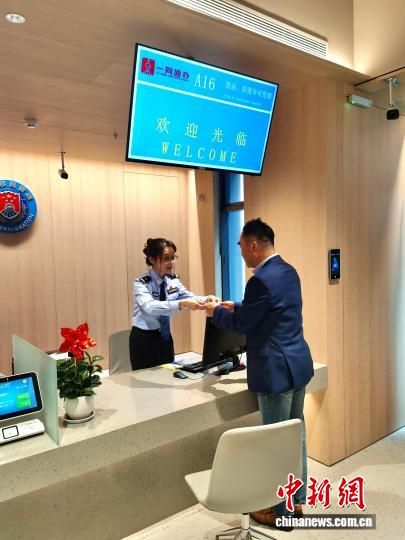On September 29, Shanghai issued its first five-year work permit for foreign legal professionals (including foreign legal consultants) hired by law firms – the maximum legal duration – along with the city’s first corresponding five-year residence permit for work purposes, issued in Changning District.
J Benjamin Bai (American Chinese), a foreign hire at King & Wood Mallesons’ Shanghai office, expressed excitement after receiving the new certificates: “Previously, applying for related permits was time-consuming and labor-intensive. This time, Changning District took proactive steps with reform and innovation, not only shortening the processing period but also fully extending the employment duration for foreign talent. Through this ‘reduction and addition,’ it releases substantial benefits from institutional reforms, genuinely benefiting law firms and legal service providers.”
Industry insiders consider the successful issuance of these certificates as a successful practice by Changning District in actively implementing Shanghai’s action plan for optimizing the business environment, exploring multi-department coordination and cooperation, and strengthening the “quick processing” and “easy processing” of talent introduction. It also represents an institutional reform breakthrough in Shanghai’s legal service institutions hiring foreign personnel for work permits.
Against the backdrop of China’s continuously expanding reform and opening-up policies and Shanghai’s accelerated construction of an international legal service center, enterprises requiring legal services for overseas expansion are increasingly numerous. Foreign-related law firms have substantial demand for international talent. Hiring foreign professionals to work in China requires applying for work permits and residence visa procedures. Previously, hired foreign personnel needed to travel between China and their home countries twice annually and stay in Shanghai for certificate processing, which not only increased the institutional costs of law firm operations but also created numerous inconveniences for overseas business expansion and stabilizing foreign talent working in China.
This exploration by Changning District provides experience for Shanghai’s breakthrough institutional reforms in foreign-related legal service supply, primarily demonstrating three highlights.
First, achieving institutional innovation from “item-by-item application” to “one-stop joint processing.” Previously, foreign personnel working in China needed to first apply for work permits, then process residence visa permits, making procedures relatively cumbersome with lengthy processing periods. After reforms, through judicial administrative organs issuing recommendation letters and coordinating with talent, public security, and other functional departments for online pre-review and joint business processing, the processing period has been shortened, achieving one-window acceptance and one-stop joint processing for law firms hiring foreign personnel, significantly improving administrative efficiency.
Second, achieving a breakthrough from “one-year visas” to the maximum legal duration (five years). Originally, work permits and residence visa durations were linked to law firm annual inspection periods. This reform breaks through law firm annual inspection period restrictions and, combined with comprehensive assessments of hired foreign personnel’s professional expertise and Shanghai’s talent urgency levels, achieves the maximum legal duration (five years) permits, effectively reducing the number of times foreign personnel need to return to Shanghai for repeated face-to-face visa processing.
Third, achieving organic unity between the warmth of “tolerant acceptance” and the strength of “early warning supervision.” Regarding tolerant acceptance, for law firms approved for permits exceeding one year, they are allowed to naturally extend hired foreign personnel’s permit durations through material supplementation in the following year, effectively reducing law firms’ daily operational costs. Simultaneously, strictly maintaining policy bottom lines, for foreign personnel with违规执业 or illegal behaviors, establishing joint early warning mechanisms and promptly initiating work permit revocation procedures, ensuring Shanghai’s standardized and orderly legal service practice environment.
Relevant departments in Changning District indicated that this practical exploration is not the endpoint of reforms. Subsequently, based on actual law firm business processing needs, they will further optimize and improve work processes, attempt to establish law firm whitelist systems, accelerate implementation of reform measures such as multiple Hong Kong and Macau business visas for lawyers, providing institutional benefits for Shanghai’s legal service industry high-quality development and overseas expansion布局, striving to create a better legal business environment.




